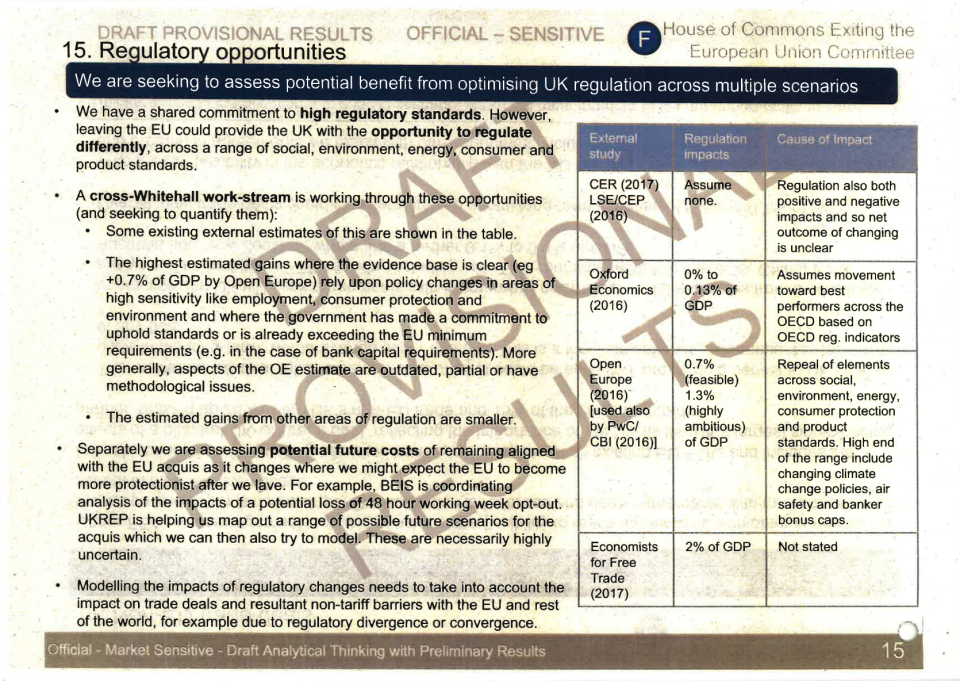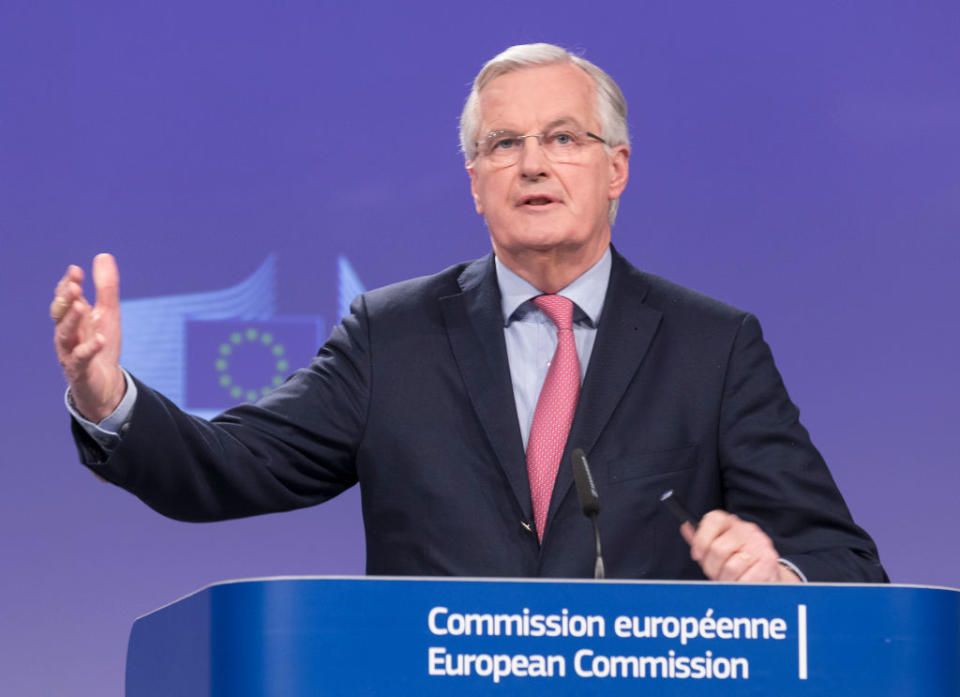UK 'must keep' EU laws on workers' rights in exchange for free trade deal

The EU is to insist Britain keeps existing legislation on workers’ rights and the environment in exchange for a free trade deal, Yahoo Finance UK has learned.
Michel Barnier, the EU’s chief Brexit negotiator, has told European trade union leaders at a meeting in Brussels today that a ‘non-regression clause’ – one that ensures EU standards are not reduced after Brexit – will be made part of any potential non-tariff agreement.
That would mean EU legislation such as the controversial Working Time Directive, which some ministers have previously singled out for the chop, would continue to apply in the UK.
Documents published recently by the European Commission’s Brexit task force indicate the EU has previously discussed the issue.
Read more on Brexit from Yahoo Finance UK:
Exclusive: EU warns human rights fears could threaten Brexit free trade deal
Theresa May under fire over plans to ditch European human rights laws
But it now appears Mr Barnier is prepared to make this a potential sticking point in any free trade agreement.
“[Barnier] is really eager to protect workers and consumers and environmental issues,” European Trade Union Confederation general secretary Luca Visentini told Yahoo Finance UK.
The development comes as the long-awaited publication of the Government’s Brexit impact assessment showed post-Brexit deregulation has been considered.

The document (pictured above) states: “We have a shared commitment to high regulatory standards. However, leaving the EU could provide the UK with the opportunity to regulate differently, across a range of social, environmental, energy, consumer and product standards.
“…The highest estimated gains where the evidence base is clear rely upon policy changes in high sensitivity like employment, consumer protection and environment and where the government has made a commitment to uphold standards or is already exceeding the EU minimum requirements.”
Brexit Secretary David Davis, Foreign Secretary Boris Johnson and International Trade Secretary Liam Fox have all previously stated their objection to the Working Time Directive.

In February, for example, Mr Johnson said: “It is only by taking back control of our laws that UK firms and entrepreneurs will have the freedom to innovate, without the risk of having to comply with some directive devised by Brussels, at the urgings of some lobby group, with the aim of holding back a UK competitor. That would be intolerable, undemocratic, and would make it all but impossible for us to do serious free trade deals.”
Ministers’ hands would be tied under Barnier’s plan for non-regression clause similar to that applied in the trade deal the EU concluded with Japan last year.
It stated: “The Parties shall not encourage trade and investment by relaxing or lowering the level of protection provided by their respective domestic environmental or labour laws and regulations.”
Theresa May said in her Mansion House speech last week that the UK would not enter a “race to the bottom” after Brexit.

“There is no serious political constituency in the UK which would support this – quite the opposite,” she said.
But today’s publication of the Government’s impact assessment has raised fresh concerns over the issue.
Green MP and Open Britain supporter Caroline Lucas said: “Make no mistake: when the secret Government analysis talks about the “opportunities” of regulating differently, they mean cutting protections on working time, paid holidays, maternity leave and potentially lowering our high food hygiene standards in a desperate pursuit of new trade deals.”
Senior ETUC official Esther Lynch said Theresa May could end speculation by translating her promise into a binding non-regression clause.
She said: “You can’t work on the basis of ‘trust us’. It has to be on the basis of explicit guarantees enforceable in law.”
While existing legislation could be protected through a clause in a free trade agreement, it may not stop divergence in the future.
The EU is currently drawing up a new Pillar of Social Rights and its unclear whether it will be adopted by the UK.
British Trade Union Congress general secretary Frances O’Grady told Yahoo: “This is a message we’ve got to get across.
“That’s what a level playing field means – not just the rights that people have now but making sure that British workers end up falling behind in the future. That’s the real risk.”

 Yahoo Finance
Yahoo Finance 